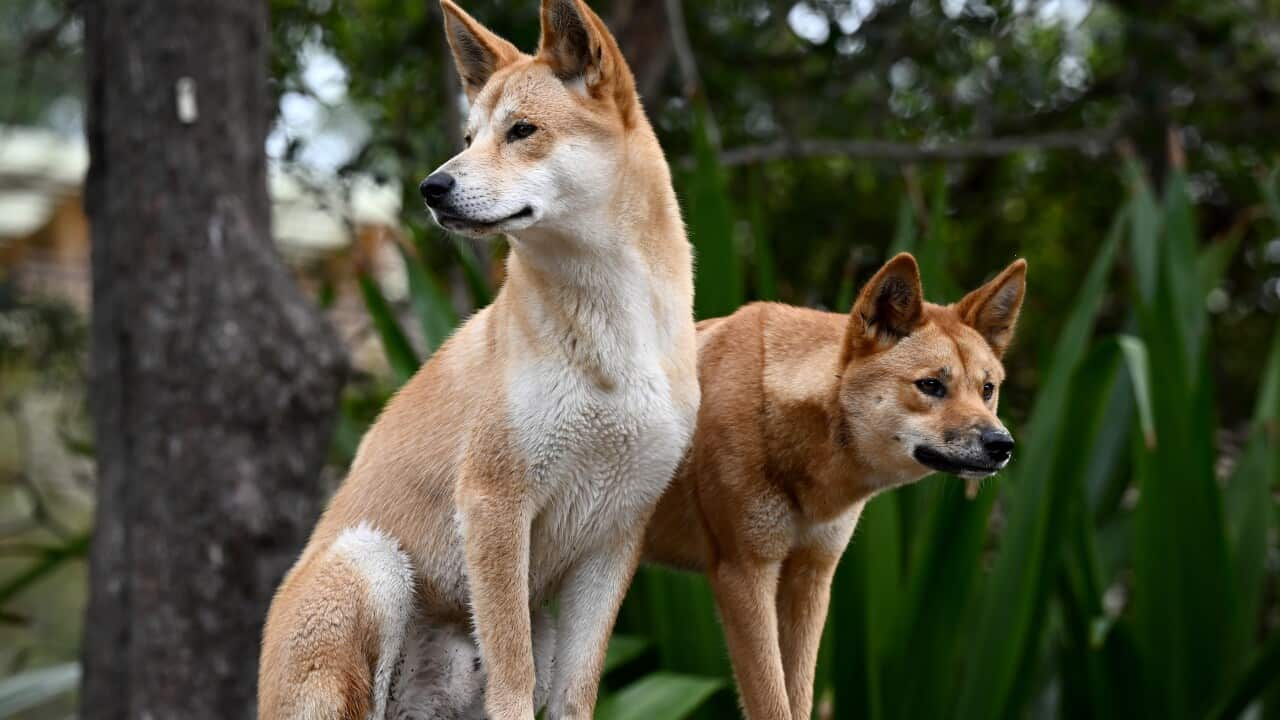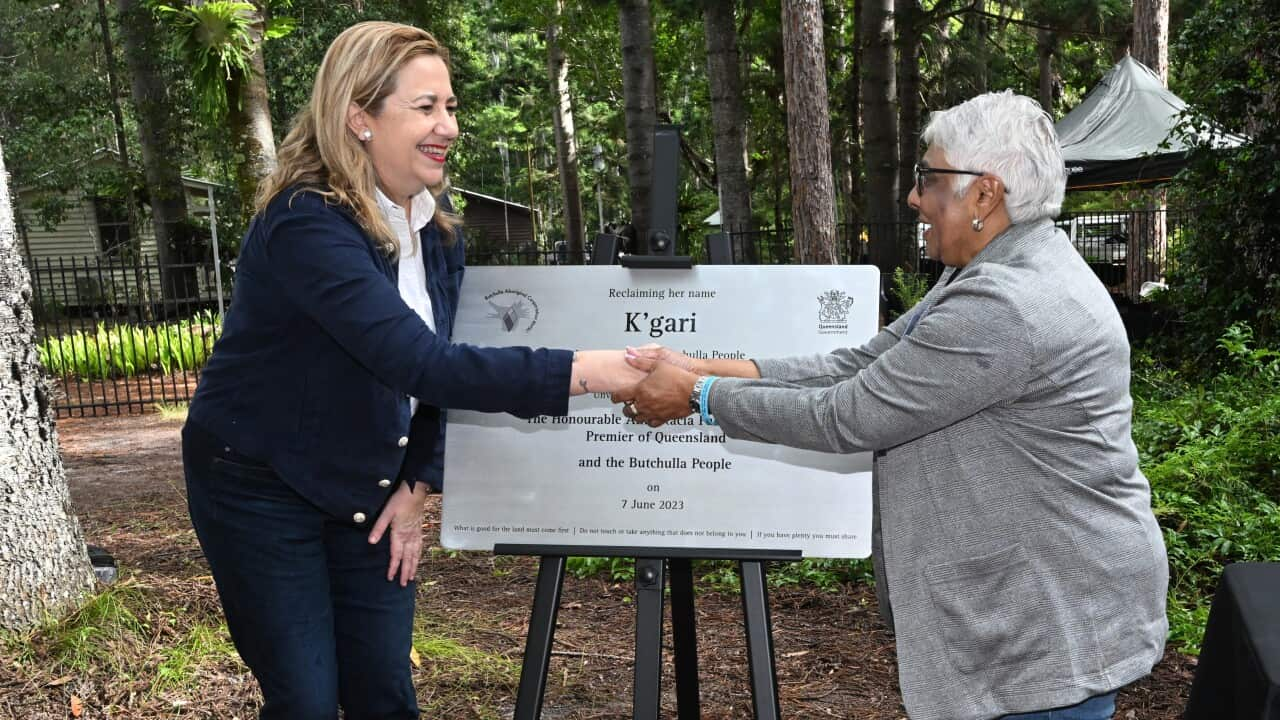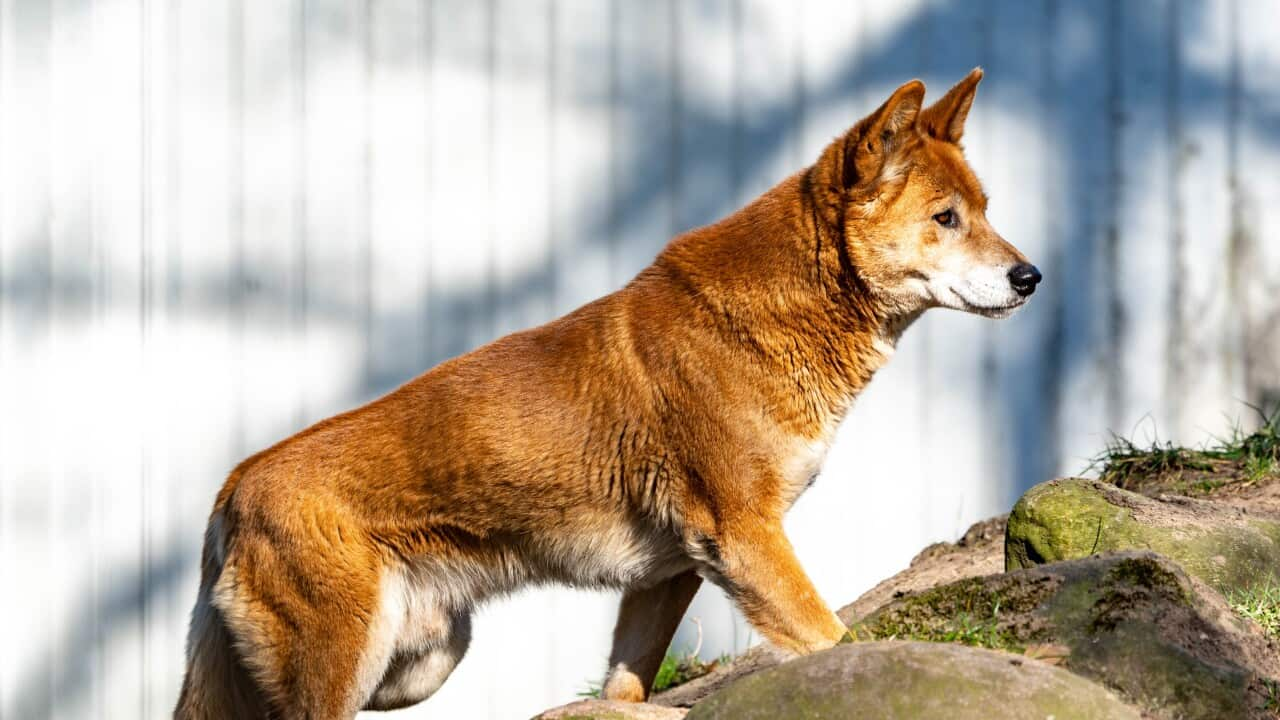Key Points
- A woman was attacked by at least three dingoes and taken to hospital.
- Some experts say dingo attacks are very rare.
- But recent attacks have Aboriginal rangers frustrated tourists haven't been following safety advice.
An attack on a woman by a pack of dingoes on K'gari (formerly Fraser Island) has put the animals in the spotlight, with rangers and authorities frustrated tourists haven't been following safety advice.
The woman was taken to hospital from the island with numerous bites after being attacked by at least three dingoes while jogging on a beach on the Queensland island on Monday.
The animals chased her into the water before two men in a four-wheel drive rushed to her aid.

Aboriginal rangers say they are frustrated visitors haven't been heeding warnings about dingo safety. Source: AAP / Christian Valenzuela
How common are dingo attacks?
"Dingo attacks on humans are very rare, and in most cases where humans have been attacked, the dingoes have become habituated to humans and have perhaps lost some fear of them," behavioural ecologist Bill Bateman wrote in .
"This is usually because they have come to associate people with food, though not necessarily as food."
However, there have been several recent and concerning encounters between humans and the native animals, known as wongaris by the Butchulla people, who are the Traditional Owners of K'gari.
The world's largest sand island, 300km north of Brisbane, was the scene of a ceremonial celebration in June when its former name Fraser Island .
Fraser Coast Regional Council Mayor George Seymour believes there have been more attacks in the past two years than in the previous decade at the national park.
"Something different is happening over the past two years," he told ABC Radio on Tuesday, pointing to both the frequency of interactions and the behaviour of the animals.
"(This) is very, very concerning because it's extremely terrifying to be attacked by wildlife."
The Queensland government committed to a series of "risk intervention actions" following a review of K'gari's dingo management strategy announced in 2019.
The review was announced following three serious dingo interactions early that year.
Environment Minister Leanne Linard said all 39 recommendations had been accepted and were in various stages of implementation.
Those already in place included extra fencing, increased penalties for people doing the wrong thing, and more rangers on the island.
Regarding the latest attack, Ms Linard confirmed one of the dingoes had been involved in a previous incident.
What do you do if you encounter a dingo?
people have not been heeding safety warnings and calls to action.
Dingo safety advice includes never feeding the animals, locking up food and food waste, camping in fenced areas, staying in groups and within arm's reach of children and not running.
Tessa Waia is the Ranger and Community Engagement Officer at Butchulla Aboriginal Corporation (BAC). BAC represent the Native Title interests of the Butchulla people.
"[The warnings] are everywhere - before you even book to go over there," Waia told NITV News.
"You've got flyers and leaflets, the visitor operators who drive tour busses, we've got signs right across the island, we've got brochures everywhere. We've also got all our rangers."
She said people are being ignorant and not heeding safety messages.
"We say you can't take food and drinks out near the water holes and you still see people cooking and having a barbecue," Ms Waia said.
"We're not doing this because we want them to have a crappy time. We want them to go out there and enjoy the beauty of K'gari."
Ms Waia said the local Aboriginal community there feels connected to the wongaris.
"[Euthanizing the wongari's] is the last resort, that we never want to get to. I'd rather be pushing for the closure of camp zones. People don't need to be up there."

Two five-month-old dingo pups, Kep Kep and Warada, at Taronga Zoo in Sydney. Tourists are being told "dingoes are not puppy dogs." Source: AAP / Taronga Zoo
"That's a sustainable population, they have a sustainable food source on the island," she said.
Dingo hunting tactics
Queensland Parks and Wildlife Service senior ranger Linda Behrendorff said one of the dingoes involved in the attack had a GPS collar.
"It is an animal that has a high-risk potential," she said.
Darren Blake from Butchulla Aboriginal Corporation told the ABC he wasn't surprised the dingoes chased the woman into the water and added they're not "puppy dogs".
"That's part of their hunting tactics," he said.
"That's what they do with wallabies … they chase them into the surf."












